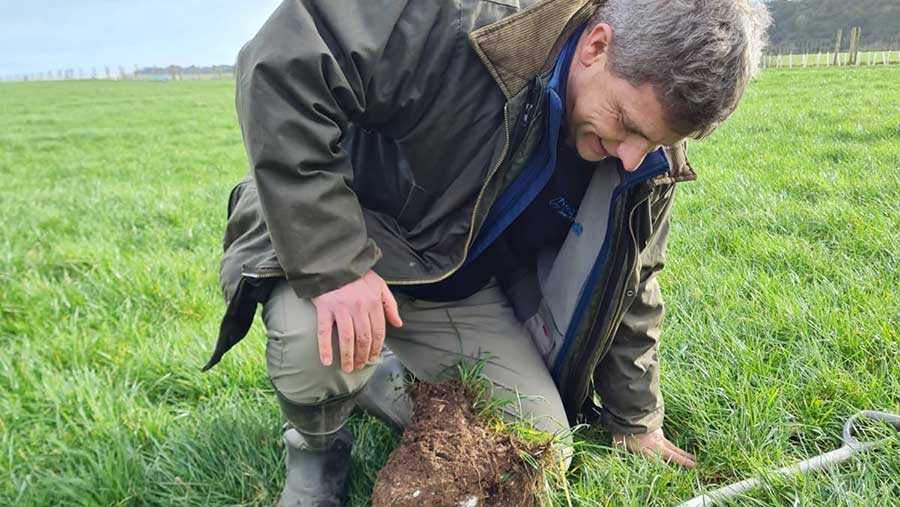Advertiser content
How to maintain soil health and encourage crop establishment
An unusually wet summer has boosted soil fertility in some areas, which is critical to maintain for encouraging good establishment and to help crops thrive throughout the growing period.
Although soil moisture is currently high compared to 2022’s drought-like conditions, David Newton, technical manager at Timac Agro UK, advises farmers not to be complacent with soil health this autumn.
He says: “There’s a lot more residual nitrogen in the soil because of the unusual amount of rain we’ve had. This is a positive outcome following a tricky harvest for many growers, and one they’ll want to maximise to ensure next season’s crops get off to the best start.”
With more nitrogen reserves and increased moisture, Mr Newton says it is important to make the most of the additional microbial and fungal activity these bring, by taking good care of the soil.

David Newton, technical manager at Timac Agro UK © Timac Agro UK
Utilise organic matter
Mr Newton says: “It’s important to utilise organic matter and work sympathetically with the soil, disturbing it as little as possible, to ensure nutrients are stored and available for the next crop.”
As well as being a fantastic source of nutrients, crop stubbles can help retain moisture in the ground, but excess residue can form a barrier for seed to soil contact.
“However, applying a soil conditioner, such as Humistart+, helps alleviate this issue by encouraging fungi and bacteria to flourish, for the natural breakdown of organic matter,” he says.
“Conditioners also help mineralise nitrogen already in the soil, making it available for the following crop, while solubilising phosphorous to stimulate early root growth once the next crop is in the ground.”
Create good structure
In addition to essential macronutrients, N, P and K, Mr Newton says calcium, sulphur and magnesium are crucial for binding the soil and creating good structure. However, these are often overlooked and can be leached during heavy rainfall, especially on shallow soils.
“Although sulphur is essential for nitrogen uptake, around 95% of UK soils are deficient in it,” he says.
“Adding a phased release fertiliser, such as Top-Phos, which is high in sulphur, either before, during or after drilling, can encourage nutrient retention and availability by working with what nature provides, while encouraging deeper rooting.”
Correct soil pH
Creating the optimum soil pH can be particularly challenging for alkaline soils, high in calcium.
Mr Newton says: “Light calcareous soils, or heavy clay soils, both high in pH, often lack phosphate availability, which is essential for germination. Incorporating either Top-Phos or Physiolith can also help correct soil pH imbalance.”
Be mindful of pests
Excess moisture and cool conditions often bring increased slug pressure, which puts newly germinating crops at risk, particularly in heavy, clay soils, where establishment tends to be slower.
“In this instance, particularly in late drilled crops, applying a starter fertiliser at drilling, such as Pinkstart, encourages swift establishment to get crops up and away from the ground fast, reducing the risk of slug damage,” says Mr Newton.
For further advice and support to create a nutrition programme suited to your farm business, visit uk.timacagro.com.
Provided by
Timac Agro has been supporting farmers to protect and improve soil health for over 60 years. Initially specialising in soil conditioners, Timac’s product and service range has evolved to include fertilisers, biostimulants, and animal health products. Supported by a proven product portfolio, there is a nation-wide team of experts to give advice to farmers to help enterprises transition to more sustainable farm practices.
